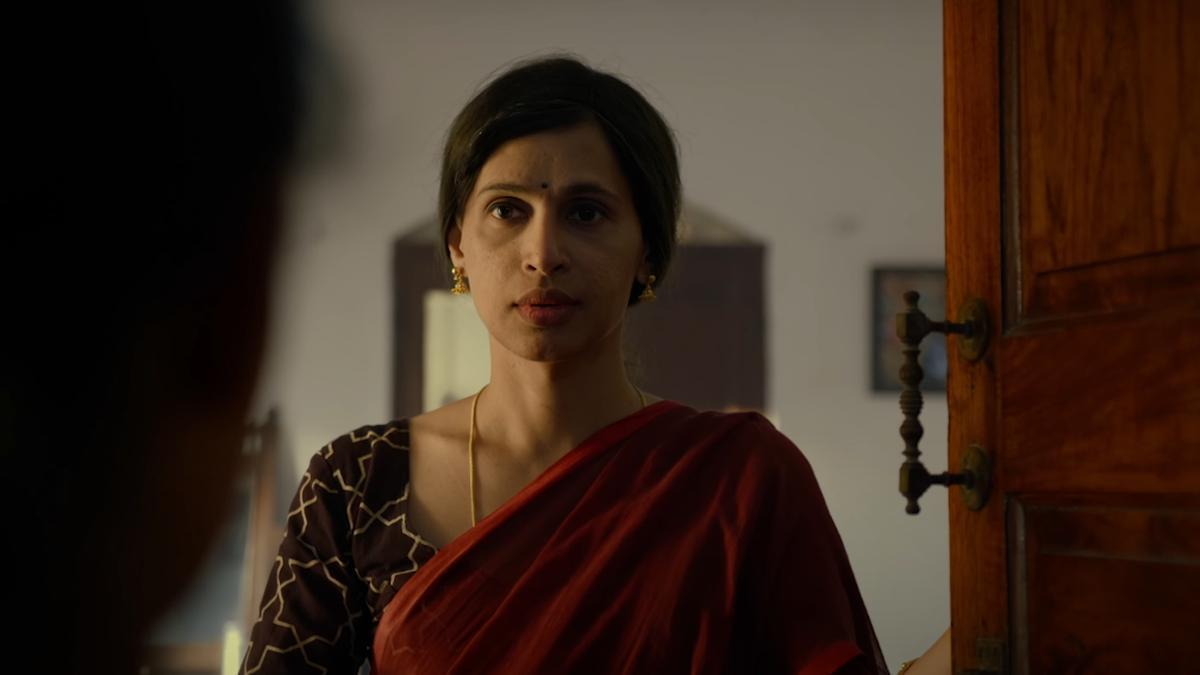
In the vast world of mainstream cinema, venturing into new, uncharted territories often invites mixed reactions. The success of such experimental films lies in their ability to address themes with authenticity without alienating the broader audience. Queer cinema, often sidelined as niche, faces a unique challenge of representation. A good mainstream queer drama seeks to depict queer characters with accuracy, resonates with audiences viewing through heteronormative lenses, and aims to dispel the stereotype of being mere melodramatic tales. In this respect, Samyuktha Vijayan’s debut directorial feature, Neela Nira Sooriyan (Blue Sunshine), shines brightly as a significant triumph in Tamil queer cinema.
The storyline of Neela Nira Sooriyan may initially appear simple to those familiar with European queer narratives. At its core, it’s the tale of a teacher, assigned male at birth, who undergoes a transition to womanhood, all while coming from a conservative rural setting. However, within these seemingly straightforward bounds, writer-director Vijayan explores a myriad of unexplored ideas that enrich Tamil queer cinema’s narrative tapestry, offering a film that is both captivating and thought-provoking.
The opening scene introduces us to Aravind (played by Samyuktha Vijayan), as he discreetly embarks on his transformational journey to become Bhanu. We witness the nuanced moments of this transition, such as Aravind’s struggle with voice feminization and the silent undoing of chest bindings to hide breast formation, all underscoring the complexity of presenting a male front to the outside world. These delicate portrayals, depicting the inner turmoil of gender dysphoria, are especially praiseworthy.
A distinguishing feature of Neela Nira Sooriyan is its setting—a rural landscape in Pollachi, inhabited by characters who are as genuine as they are compelling. Each character interaction, no matter how brief, contributes organically to the narrative surrounding Bhanu. We see the emotional journey of a mother (Geetha Kailasam), who grapples with accepting her child’s transition from son to daughter, along with her struggle to switch pronouns. Bhanu’s pain upon being deadnamed and the ignorance surrounding her gender identity are poignant, yet the film refrains from painting any character with undue malice.
As Bhanu takes up work as a Physics teacher in a private school, the film transforms into a socio-drama, shedding light on societal attitudes towards transgender individuals. Bhanu faces disdain from colleagues like the Vice Principal (KVN Manimegalai), with acceptance only tokenistically extended by the Correspondent, who views Bhanu as a potential public relations boon.
. An intriguing subplot involves a cis-het male teacher’s fetishistic view towards trans women, adding another layer of social critique.
Vijayan’s narrative courageously exposes the systemic lack of empathy in educational institutions, especially concerning the rights of transgender individuals. The film introduces us to Karthik (Masanth Natarajan), a non-binary student who draws strength from Bhanu’s resilience. While initially seeming somewhat contrived, Karthik’s subplot underscores the challenges around gender plurality and inclusivity in a predominantly cis-heteronormative society. It highlights Bhanu’s limits in understanding other queer identities while drawing a parallel to the broader fragmentation within the LGBTQIA+ community—a bold narrative move.
Karthik and Bhanu’s experiences poignantly illustrate the systemic exploitation of those non-conforming to societal norms. In a particularly impactful scene, a government institution’s ostensibly supportive provisions for the queer community are revealed as more burdensome than beneficial, reflecting society’s reluctance to truly embrace gender fluidity.
One critique of Neela Nira Sooriyan is its emphasis on systemic critique at the expense of deeper insight into Bhanu’s personal world. The film presents Bhanu through her relationships, rather than diving deeply into her self-identity. Even exchanges with a psychologist (played by Kitty) remain surface-level, leaving a longing for more personal revelation. Such intricate details could have formed a continuous undercurrent throughout the film.
The film’s nuanced approach leaves audiences yearning for further exploration of Bhanu’s personal expressions of femininity pre-transition. What private moments did she cherish? What were her inner struggles with makeup and identity? However, Samyuktha’s storytelling serves a broader purpose, staying true to its unique narrative direction.
Neela Nira Sooriyan marks a significant leap forward in Tamil queer cinema, celebrated for its authentic performances, insightful writing, exceptional sound design, and subtle yet engaging presentation. The film is an invitation to invest emotionally, offering hope and setting a precedent for future films in the genre. Neela Nira Sooriyan currently graces theaters, inviting audiences to partake in its pioneering narrative.










